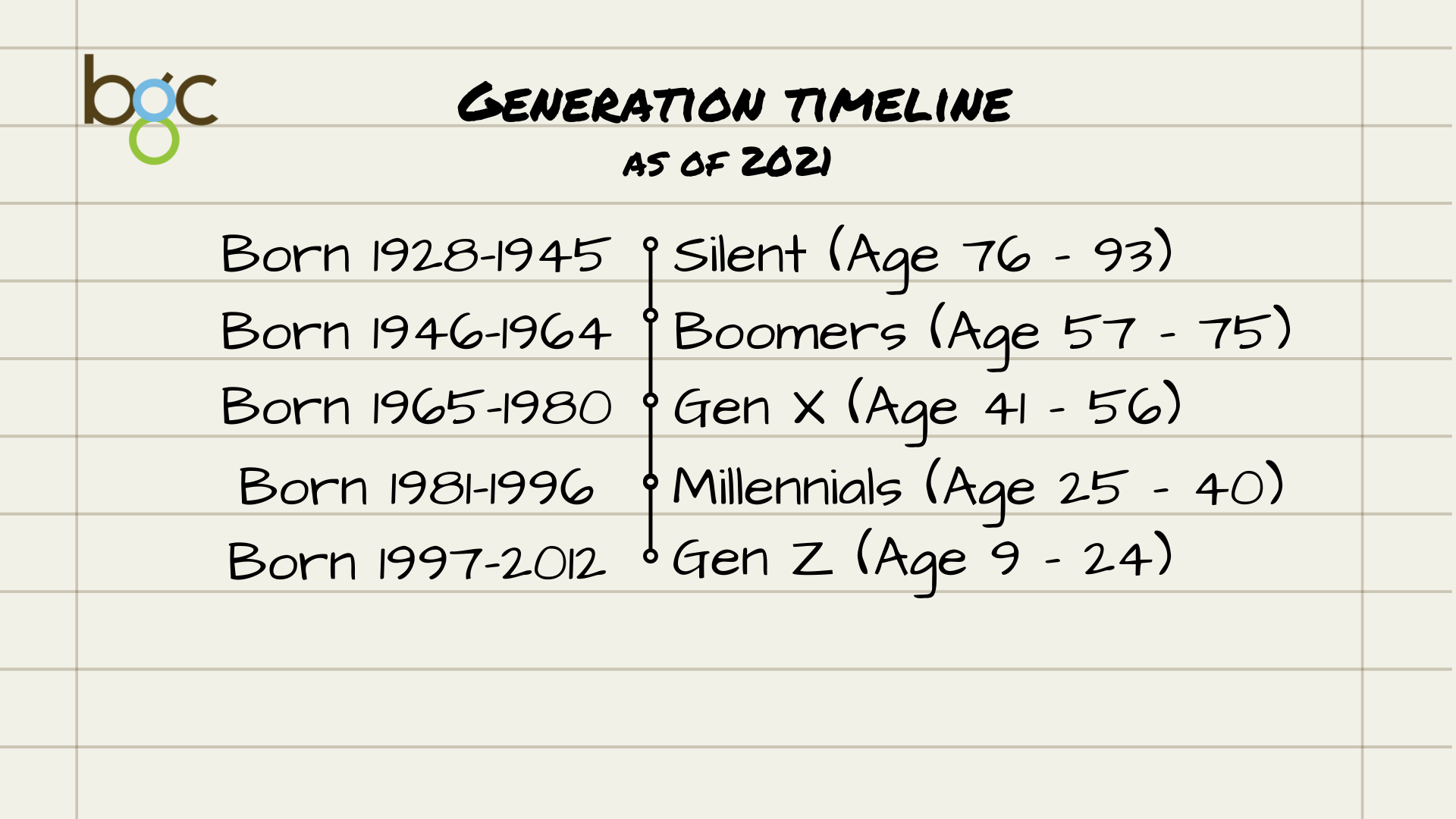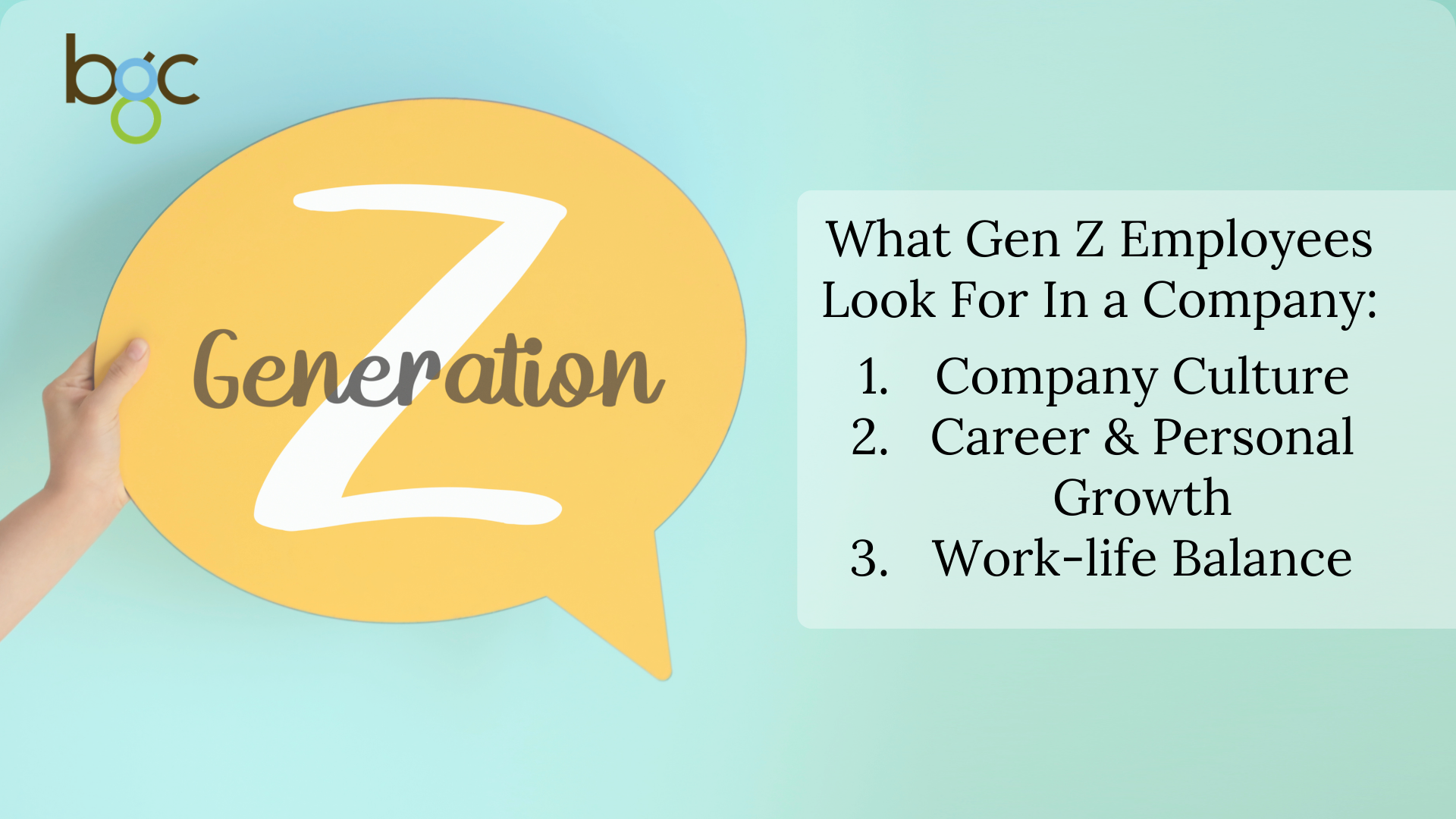Generation Z is a term often used to describe the latest group of youths entering today's workforce. Despite the oldest members of this generation turning 24 in 2021. There are still many who might think that Gen Z's are still kids glued to their mobile devices. As a recruitment company in Singapore, we are here to dispel the myths many might have regarding these youths.
Unfortunately, there are many misconceptions about Gen Z employees. Many amongst us might still think that Gen Z are just youths who are still glued to their mobile and tech devices 24/7. Or that Gen Z youths have extremely short attention spans. In this article, we'll examine two very different things: (a) Who are the Gen Z and (b) Why do they differ from the other generations?

Who are the Gen Z youths?
Gen Z's are individuals born between the years 1997 and 2012. Approximately 30% of the Singapore population are part of this generation. What makes Gen Z's very different from the other generation is that they're the first social generation to have grown up with access to the Internet and portable digital technology from a young age.
This makes most Gen Z individuals very proficient and comfortable with collecting and cross-referencing from many sources of information. Additionally, Gen Z's inherit a strong economy with a record-low unemployment rate from the Millennials and are also more concerned than older generations with academic performance and job prospects.
Millennials vs Gen Z: What is the Actual Difference?
People who belong to Millennials are people who were born between 1981 and 1996 (age 25 to 40) and are often identified as tech-savvy because they grew up with the increased usage and familiarity with the Internet, social media, and mobile devices. This group of people has already joined the workforce but have already faced economic disruption since the start of their working lives, because of the Great Recession in 2008 and the COVID-19 pandemic.
Some major differences between Millennials and Gen Z individuals are:
1. Mentality
One of the biggest differences between a Millennial and Gen Z individual is their mentality. Millennials grew up with a recovering economy. Perhaps that’s why they tend to have a more positive outlook in life. Millennials were also raised by Baby Boomers during a time of economic prosperity. While Gen Z individuals were raised during the Great Recession. Therefore, Gen Z employees tend to be more practical and realistic with their choices. This mentality is further amplified in Gen Z employees due to the Covid-19 pandemic.
2. Independence
Gen Z's value independence over collaborative work. Millennials on the other hand, prefer collaborative work. With these differences in mind, as an HR recruitment agency, here are some of the common Gen Z behaviours that we think that companies can take note of when they are recruiting:
Tech Native: being born into the digital era, it is inevitable that Gen Z's are more technologically inclined compared to the previous generations. Gen Z's were born into technology, learned, and adapted to the technology as they grow. While Millennials were growing with technology, and that’s why they are considered to be tech-savvy.
Self-reliant: as they grew up with technology and information readily available to them, they tend to rely on themselves to seek out the answers to their questions. “Wait, let me Google this”, a sentence that is commonly heard amongst Gen Z's.
Well-read: Most Gen Z's make well-informed decisions because, again, most of the information is readily available on the internet. Many Gen Z individuals choose a company based on their corporate social responsibility activities, ethics, and practices, and not solely on the quality of their products and/or services.
Now that we understand the major differences between a millennial and a Gen Z employee. We've curated a list of factors that Gen Z individuals look out for when they are job searching.

1. Company Culture
In a survey conducted personally, most of the undergraduates are focusing on companies that have a cohesive and welcoming company culture. This means that the branding and cause of the company have to align with their personal values and beliefs. One of the factors that Gen Z's look for, as they are well-read and exposed to information readily available, is if the company participates in social causes, has any corporate social responsibility campaigns, and if sustainability is one of their top priorities and not just about the profit.
Another factor that these youths tend to focus on is if the company treats the employees well. One of the ways that companies can do so, is to provide a fun and flexible work environment. With the freedom to connect with anyone at any time with the touch of a button, it is with no doubt that Gen Z's hope to have that same level of freedom when it comes to working. By providing a fun and flexible work environment, companies would also be able to cater to the mental wellness of their Gen Z employees because of their short attention spans. If you force them to sit down for 10 hours straight to get a job done, they might burn out.
2. Career and Personal Growth
Having a strong desire to learn and grow is one of the characteristics of Gen Z. In addition to learning from what the Great Recession has done to the Millennials, a lot of Gen Z's prefer to have a strong career progression over the years and promised job security. Gen Z's also prefer companies who provide them opportunities to better themselves personally too, through enhancing their soft skills.
According to one of the studies conducted, Gen Z's learn and grow better through failure. Hence, Gen Zers are seeking positions where they will have the opportunity to learn different skill sets that are not just for their job, but for other aspects as well. They have strong desires to learn as much as possible, hence they do not wish to be doing the same kind of job repetitively. Companies and Gen Z employees can both benefit, should there be opportunities for them to further their knowledge and skill sets digitally.
3. Work-life balance
To promote mental wellness for the Gen Z employees, or in fact all employees across the generation, it is important that companies provide them employees work-life balance.
Work-life balance can be implemented through the creation of a community and/or a family-like culture in the company where employees can communicate and support each other. There are multiple ways that a company can promote work-life balance:
Providing employees platforms to relax and work out both their physical and mental bodies
Managing the workload of the employees to ensure that they are not overworked
Provide adequate time for the employees to complete their work (no short deadlines, or no last-minute work)
Allowing employees to work at their own pace (flexible working)
Encouraging employees to focus on productivity than the hours put in, and for the leaders to set a good example too.
With more and more of the incoming workforce comprising of Gen Z's. It is time to ask if your company is equipped and ready to accept the new generation in the workplace.
Are you a Gen Z youth looking for a job? Check out our website to see what jobs are suitable for you!
Read more: What Do Gen Z Employees Want From Their Workplace?
